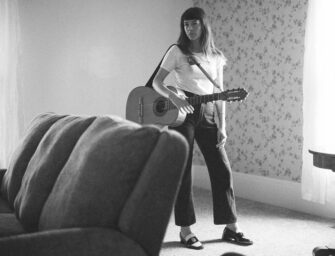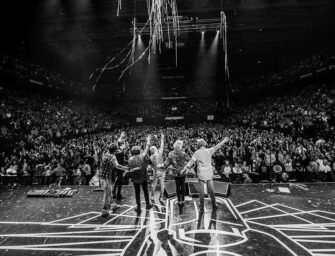
Peter Raeburn explains his process for writing to a brief for film and television in Songwriting Magazine Winter 2018
We asked the award-winning composer and producer how he approaches creating music for the media, alongside writing songs for himself
Born in South Africa and raised in London, where he’s spent much of his adult life, Peter Raeburn has carved out a successful career in writing, producing, sourcing, remixing and performing music for use in film, television and commercials. His credits include Sexy Beast, Breaking The Waves, Birth, Blue Valentine, Molly Moon, Mandela: Long Walk To Freedom, Woodshock, The Last Photograph, Behold My Heart, The Lie and Nancy – he’s even created the music signatures for Skype and ITV.
After years working behind the scenes, Peter has stepped into the spotlight with the release of his debut album, Note To Self. Despite describing the record as, “a reaction against briefs,” he agreed to share some insights into writing to order, as well as how he writes music as a form of personal expression.
WHERE DO YOU START?
“I write both songs for briefs as well as scores and instrumental work, and somehow there’s a desire to try and split an atom, or hit what a sense of a bullseye might be. I think sometimes briefs know what they are and sometimes they clearly don’t. So the first thing is being able to spot the conviction in the brief: how much of it is bullshit and how much is great, clear ambitious direction. One of the problems is that a lot of briefs look the same, which suggests they haven’t been written that thoughtfully and, yet, it’s all normally in there. The point is, even if there are words in there that feel tedious and tiresome, and impersonal, briefs are like clues. Sometimes they’re written and sometimes they’re words in conversations in phone calls, and I think it’s a composer and songwriter’s job to challenge the brief. Because when it actually comes down to working, the brief needs to be like water going over you and inside of you, rather than words in your head – I need to clear my head so I can channel what I understand. So looking at a brief is a real combination of an intellectual and emotional exercise, much like making music itself.”
WHAT IS THE BRIEF?
“For me, a brief is an intent, it’s a jumping-in and jumping-off point for the project. They can often just say ‘uplifting, euphoric, feel good.’ The word ‘build’ is often used to say they want something ‘stirring’, so it gets the goosebumps and hairs on the neck to stand up. A lot of the time, they want us to help people feel good, and words in briefs suggest that. But I think you need to earn that, you can’t just signpost things, otherwise you’re in a world of ‘musical subtitles’ and I think authenticity and integrity is a really important part of being a representative of music. Briefs can also take the form of music itself.”
WHO’S INVOLVED?
“Directors, filmmakers, advertising agencies… But the work itself has so much instruction in it. Certainly, with the songs I’ve written to a brief, they’ve only really worked out when I understand the brief, forget it, and then created something that feels like it just needs to exist in its own right. They needed to feel like they weren’t written especially for the film, otherwise, I think music has the capacity to feel very disposable, and that is upsetting for me.
“I also work a lot with people who aren’t sure what they want, and that’s always interesting because that’s very honest. They say, ‘We’re not sure, what do you think?’ So my advice, if I give any advice, is that people develop their own opinions. And when I say that, I don’t mean cynicism, because I believe the real message is about people having their own viewpoints – that’s what’s going to make every songwriter and composer more unique.”
NARROW OR EXPAND?
“It’s the feeling that we’re after, and that isn’t something which the brain can process – the brain facilitates the heart and, for me, that’s where the music has to come from. Ultimately, whether it’s interrogating a brief or investigating it, I think a brief should – at its best – allow us to explore everything. Not to narrow down straight away; we need our minds open. But within that, there are so many options.”
WHEN AND HOW LONG?
“Time is always very precious and music doesn’t have a clock. I’m kind of writing all the time. My brain is processing, and there is work happening – consciously, subconsciously and unconsciously. People like me dream in music, even if we don’t wake up with melodies, the mind marinates ideas and thoughts. So if it’s the case of coming up with a theme or a hook or a lyric, it’s about being available all the time, to catch those moments. I obviously put specific time for what I would call ‘the graft’ – the carpentry of this job – as that’s quite measurable. But to come up with the nuggets, the hooks, that is a more mystical process. I think the magic happens when we’re not trying to do magic. Therefore, being really open to going on a creative process, and not being in a rush to finish stuff, often makes things a lot quicker. Because, ultimately, I’m my biggest client and my most critical – I have to be happy.”


































Related Articles